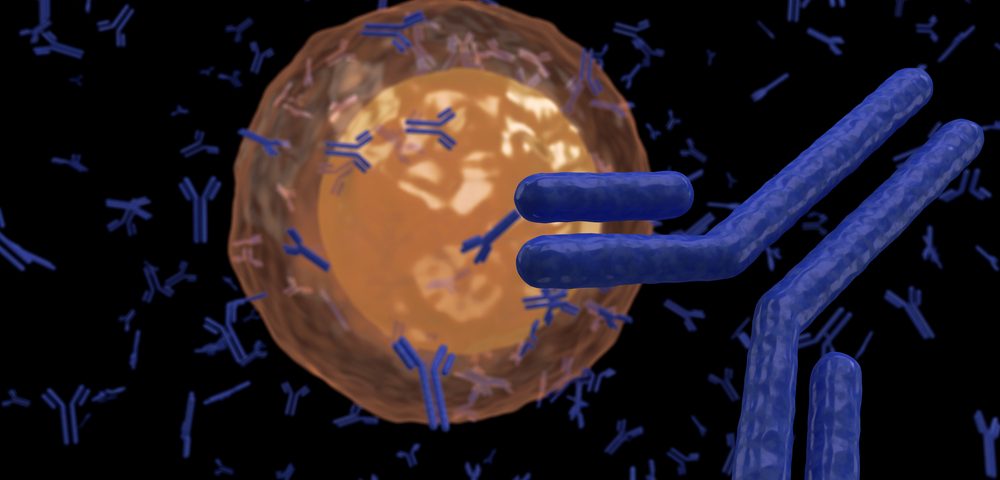Researchers have reported finding a protein that protects the ends of B-cell chromosomes when the cells change their DNA to produce highly specific antibodies in response to infection.
Their study, “UNG protects B cells from AID-induced telomere loss,” published in The Journal of Experimental Medicine, suggests that the enzyme uracil-DNA glucosylase (UNG) may be targeted to treat certain types of non-Hodgkin’s lymphoma.
When B-cells encounter an antigen (molecule recognized as foreign by the immune system), they start proliferating and expressing a DNA-modifying enzyme called activation-induced deaminase (AID). The enzyme induces mutations in the B-cells’ immunoglobulin genes so that they can produce a variety of antibodies to target the particular antigen with different affinities.
But as a side effect of antibody gene diversification, AID also produces several off-target mutations that can either induce cell death or lead to cancer initiation, if not corrected by UNG or other DNA repair proteins.
Based on the similarities that exist between telomeres (structures that protect the ends of chromosomes to avoid losing genetic information each time a cell divides) and immunoglobulin genes, the researchers thought that AID could also be targeting telomeres in activated B-cells.
Although AID was found to localize at the telomeres of B-cells, the researchers did not find any changes in telomere length. That suggested that DNA damage enzymes were repairing AID-mediated mutagenesis.
To confirm their theory, the investigators inhibited UNG (the major factor recognizing AID-derived mutations) in activated B-cells. In those cells, they found that AID created mutations in the telomeres which led to their rapid shortening and resulted in greatly reduced B-cell proliferation. This showed that UNG was required to repair mutations in the telomeres, prevent telomere loss, and allow B-cell expansion following an encounter with a foreign antigen.
But the results also suggested that the proliferation of lymphoma cells expressing high levels of AID could depend on UNG, similar to normal B-cells. The researchers examined several human diffuse large B-cell lymphoma cell lines and found that inhibiting UNG was a good approach to decrease the proliferation of cells expressing high levels of AID.
“So UNG can contribute to lymphomagenesis by protecting telomeres from AID-induced damage,” Ramiro Verdun of Sylvester Comprehensive Cancer Center at the University of Miami Miller School of Medicine and the study’s lead author, said in a press release. “We show that cancerous human B cells expressing AID require UNG for proliferation, suggesting that targeting UNG may be a means to delay the growth of AID-positive cancers.”


